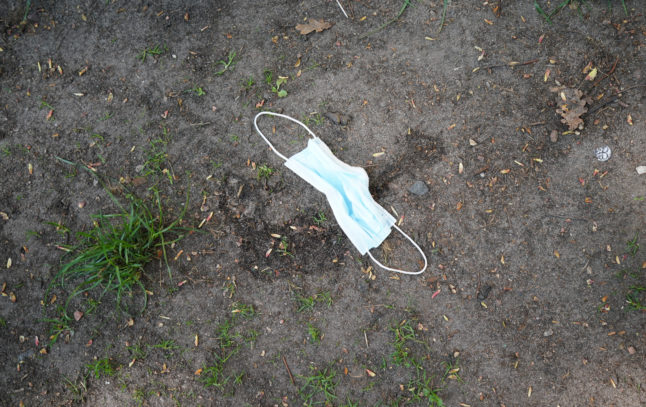Following a video meeting on Monday, the health ministers of Germany’s 16 states said tougher restrictions should be imposed again if they are needed.
“The corona pandemic is not over yet – we must not be deceived by the current declining incidences,” said Saxony-Anhalt’s health minister Petra Grimm-Benne, of the Social Democrats, who currently chairs the Conference of Health Ministers (GMK).
According to the GMK, new virus variants are expected to appear in autumn and winter. Over the weekend, federal Health Minister Karl Lauterbach (SPD) also warned that the more dangerous Delta variant could return to Germany. “That is why the federal Ministry of Health should draw up a master plan to combat the corona pandemic as soon as possible and coordinate it with the states,” Grimm-Benne said.
Preparations should also include an amendment of the Infection Protection Act, ministers urged. They want to see the states given powers to react to the infection situation in autumn and winter. They called on the government to initiate the legislative process in a timely manner, and get the states actively involved.
The current Infection Protection Act expires on September 23rd this year. Germany has loosened much of its Covid restrictions in the last months, however, face masks are still compulsory on public transport as well as on planes.
READ ALSO: Do people in Germany still have to wear Covid masks on planes?
The health ministers said that from autumn onwards, it should be possible for states to make masks compulsory indoors if the regional infection situation calls for it. Previously, wearing a Covid mask was obligatory in Germany when shopping and in restaurants and bars when not sitting at a table.
Furthermore, the so-called 3G rule for accessing some venues and facilities – where people have to present proof of vaccination, recovery, or a negative test – should be implemented again if needed, as well as other infection protection rules, the ministers said.
Bavaria’s health minister Klaus Holetschek, of the CSU, welcomed the ministers’ unanimous call for a revision of the Infection Protection Act. “The states must be able to take all necessary infection protection measures quickly, effectively, and with legal certainty,” he said.
North Rhine-Westphalia’s health minister Karl-Josef Laumann (CDU) warned that no one should “lull themselves into a false sense of security”.
“We must now prepare for the colder season and use the time to be able to answer important questions about the immunity of the population or the mechanisms of infection chains,” he said.
On Tuesday, Germany reported 86,253 Covid infections within the latest 24 hour period, as well as 215 Covid-related deaths. The 7-day incidence stood at 437.6 infections per 100,000 people. However, experts believe there could be twice as many infections because lots of cases go unreported.
READ ALSO: Five things to know about the Covid pandemic in Germany right now



 Please whitelist us to continue reading.
Please whitelist us to continue reading.
Can we call covid endemic yet? We know its patterns. Numbers fall in summer and go up in winter. Its not like its surprising us. But I guess you couldn’t make up the obvious power grab coming from the state.